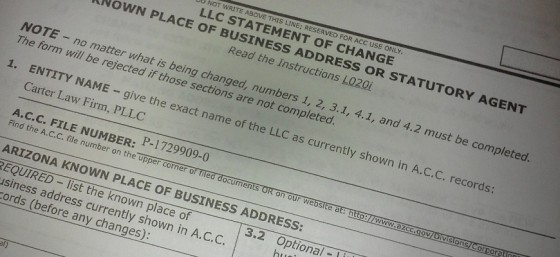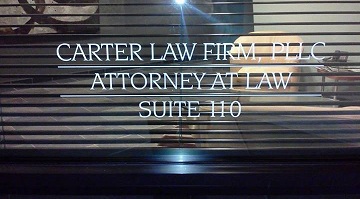
Frequently, I receive emails from people who need help moving their business from California to Arizona. They typically find me after reading my post about how challenging it is to move a company from California to Arizona, particularly a corporation. One of the most common questions they have is, “What will this cost?”
Cost to Move a Corporation from CA to AZ
Moving a corporation from California to Arizona is complicated because it requires forming a new business entity in Arizona and then merging with the California entity where the Arizona entity is the surviving business. This requires extra steps and extra fees. Here is the process if the surviving entity is an Arizona corporation, with all filing expedited.
- File the Articles of Incorporation with the Arizona Corporation Commission (ACC): $95
- File the ACC Statement of Merger: $135
- Once the Statement of Merger is approved, request and obtain a certified copy of Statement of Merger: $42
- Send the notice of the merger to the California Secretary of State: $100
Total filing fees: $372
In addition to these filing fees, you are required to publish notice of your Articles of Incorporation and Statement of Merger in a local newspaper if your Arizona business is located outside of Maricopa or Pima County: Each approved newspaper sets its own prices, which I’ve seen range from less than $40 to over $400. In my experience, the fewer approved newspapers in the county, the higher the publication fee.
All of this does not include attorneys’ fees. I tell my prospective clients to expect this total process to take 3-4 hours of my time. (My current rate is $275/hour, so up to $1,100.)
UPDATE (1/10/2023): The process to move a corporation from CA to AZ recently changed! It’s now easier, faster, and more cost-effective.
Cost to Move an LLC from CA to AZ
Moving a limited liability company from California to Arizona is much less complicated than moving a corporation. Thankfully, this does not require a merger.
- File the Statement of Conversion with the ACC: $85
- Along with the Statement of Conversion, file the Articles of Organization: $85
- Once these filings are approved, file a Statement of Conversion with the California Secretary of State: $30
Total filing fees: $200
The form for each Statement of Conversion is provided by their respective states. Like a corporation, if your Arizona LLC is not located in Maricopa or Pima County, you must publish a notice of your Arizona LLC in an approved newspaper. As stated above, each publication sets its own prices and they can vary greatly, so it’s often worthwhile to call all the approved newspapers in your county, unless you have your heart set on publishing in a particular one.
Of course, there is also the fee for your attorney’s time. I tell my prospective clients to expect this process to take 2-3 hours of my time (so at my current rate is $275/hour, it would be up to $825.)
Moving an Entity from California to Arizona Without an Attorney
You are not required to use an attorney to move your business entity from California to Arizona. You can submit these filings yourself. However, I strongly recommend that you consult with an attorney along the way. I’m working with a client right now who is doing their own merger. Each step of the way, he checks in with me via email, and I helped him write the notice of the merger to the California Secretary of State.
I have another client who came to me after trying to move their entity themselves and it backfired. He tried to move his California corporation to Arizona using a Statement of Conversion. The ACC approved it, but the California Secretary of State won’t accept a Statement of Conversion as a way to move the entity out of the state. He essentially wasted his money and time filing the Statement of Conversion in Arizona, because I still have to file the Statement of Merger and the subsequent notice to California to achieve his goal of moving the entity out California. It probably cost him more trying to do it himself, because I also called the Secretary of State’s Office to see if I could untangle this mess and merely send a notice of the conversion – which they said is not permitted.
I frequently say it’s easier and cheaper to avoid problems than to fix them. If you’re preparing to move your business to Arizona, please contact me if you need help – whether you want me to do everything for you or be available to help you do it yourself.
If you want to regularly receive information about how you can run your business more effectively and keep up to date on other legal issues related to business, intellectual property, and internet law, please add yourself to my email list.





